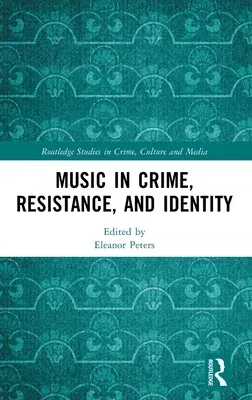This book considers the intersection of music, politics and identity,
focusing on music (genres) across the world as a form of political
expression and protest, positive identity formations, and also how the
criminalisation, censuring, policing and prosecution of musicians and
fans can occur.
All-encompassing in this book is analyses of the unique contribution of
music to various aspects of human activity through an international,
multi-disciplinary approach. The book will serve as a starting point for
scholars in those areas where there has been an uncertain approach to
this subject, while those from disciplines with a more established canon
of music analysis will be informed about what each perspective can
offer. The approach is international and multi-disciplinary, with the
contributing authors focusing on a range of countries and the differing
social and cultural impact of music for both musicians and fans.
Academic disciplines can provide some explanations, but the importance
of the contribution of practitioners is vital for a fully rounded
understanding of the impact of music. Therefore, this book takes the
reader on a journey, beginning with theoretical and philosophical
perspectives on music and society, proceeding to an analysis of laws and
policies, and concluding with the use of music by educational
practitioners and the people with whom they work.
This book will appeal to students and scholars in subjects such as
sociology, criminology, cultural studies, and across the wider social
sciences. It will also be of interest to practitioners in youth justice
or those with other involvement in the criminal justice system.

